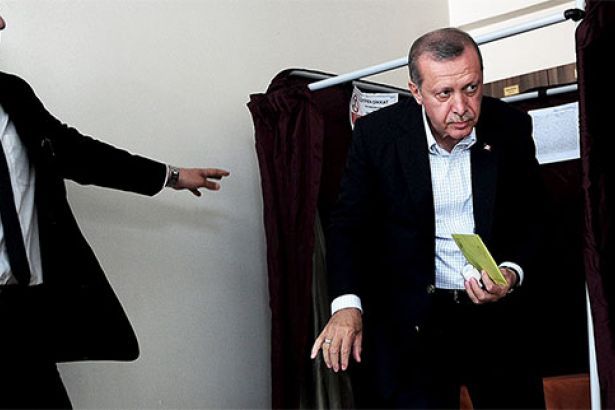Turkey's new vote law to accept unsealed ballots as valid

The Turkish parliament passed a new law on pre-election alliances and electoral regulations in the early hours on March 13. The law package was accepted with the majority votes of lawmakers from the ruling Justice and Development Party (AKP) and the Nationalist Movement Party (MHP).
The AKP and the MHP parties had previously agreed to prepare a draft bill that will allow them to form an alliance for the presidential election scheduled to be held in 2019. The 26-article package was approved at the parliament amid harsh criticism of the parliamentary main opposition Republican People’s Party (CHP) and the pro-Kurdish Peoples’ Democratic Party (HDP).
UNSEALED BALLOTS WILL BE VALID
An article of the law package entitles the Supreme Election Council (YSK) to accept unsealed ballots as valid. This article particularly led to criticism since it overtly paves the way for illegitimacy for the upcoming elections considering that the YSK controversially decided to regard unsealed ballots valid just as the votes were counted at the April 2017 constitutional referendum.
Normally, for a ballot to be considered valid, it must bear the official stamp on the back, be put into an envelope that also bears an official stamp and be handed to the voter by an electoral official at a polling station. The system is designed to ensure that only one vote is cast per registered person and to avoid the possibility of ballot box-stuffing.
As President Recep Tayyip Erdoğan’s ‘yes’ campaign won the April referendum with a razor-thin margin, tens of millions of Turkish citizens still regard the referendum results as fraudulent and illegitimate because of the YSK’s last-minute change.
According to the new electoral law package, political parties will be able to enter into elections as an alliance with their party emblems on ballot papers. In the case of an alliance of some political parties, the alliance will be written with a logo on ballot papers as the allied party names will be located next to each other.
As the electoral threshold of ten percent remains, the new package projects that if the allied political parties’ votes in total exceed the threshold, each of the parties will pass the threshold even one of them gets less than 10 percent of the votes. The number of lawmakers will also be determined in accordance with the sum of the votes of the alliance.
It is obvious that this article was designated to catalyse the alliance of the AKP and the MHP parties in 2019 elections. Prior to the referendum in 2017, an intra-MHP faction wanted to hold a party congress to change the leadership but the congress could not be organized with the support of the AKP government to the existing MHP leader Devlet Bahçeli.
The MHP faction voted for ‘no’ while the Bahçeli side voted for ‘yes’ at the referendum. Afterwards, the factionists established a new ultra-nationalist party, the ‘Good Party’ under the lead of Meral Akşener. The new electoral law will save and enable Bahçeli’s MHP party to exceed the threshold in alliance with the AKP.
PRO-GOVERNMENT OFFICIALS TO BE ASSIGNED FOR BALLOT COMMITTEES
Another article says that all the lists of the civil servants will be evaluated by the governor of the related province and sent to district electoral committees for the assignment of ballot box chiefs among the civil servants.
Considering that all the governors are assigned and approved by President Recep Tayyip Erdoğan, the governors will be able to charge pro-government officials for ballot box procedures, which will cast a shadow upon electoral security.
Yet another controversial article entitles the district electoral committees to change the area of a ballot box of the citizens who are residing at the same residence. Many citizens believe that this procedure will be used as an instrument to cover the frauds during the future elections.
The regulation also paves a way for private security officers, armed personnel and municipal officers to enter ballot box rooms for “electoral security”. With all these new regulations, previous electoral irregularities have become legalized in favour of the AKP government and its partner MHP party.
Turkey’s general elections are scheduled to be held in November 2019 to elect both the President and the Grand National Assembly. Following the controversial constitutional referendum in April 2017, the elected President will be both the head of state and head of government while the prime ministry office is to be abolished.




